|
|
|
|
|
|
|
|
Today's Congressional Action:
The House and Senate are not in session.
|
Media
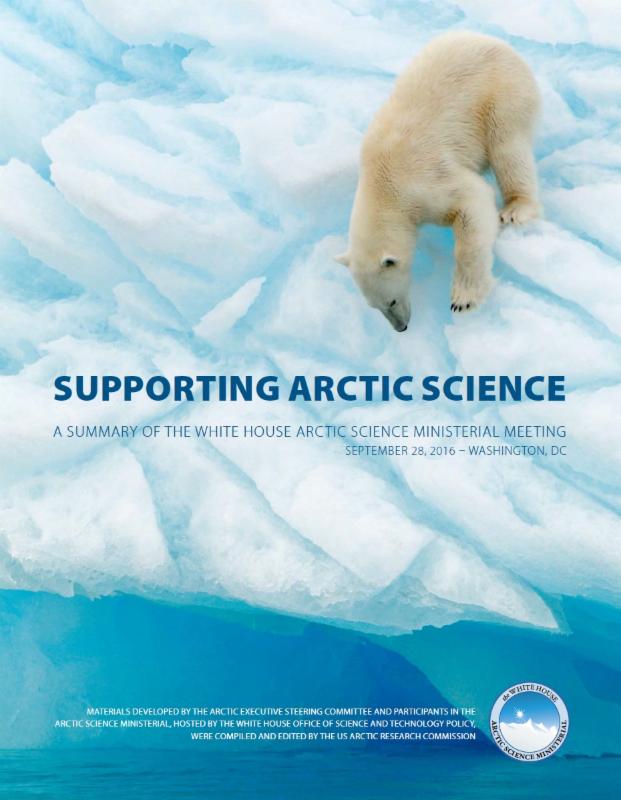 ** New Report Released ** Supporting Arctic Science: A Summary of the White House Arctic Science Ministerial Meeting. ** New Report Released ** Supporting Arctic Science: A Summary of the White House Arctic Science Ministerial Meeting. This document summarizes the first-ever Arctic Science Ministerial that was held in Washington, DC, at the White House, on September 28, 2016, to advance international research efforts. It includes the meeting agenda, a list of participants, a White House "fact sheet" that describes the outcomes from the meeting, a Joint Statement of Ministers, and a list of media reports on the event. The document also includes a compilation of two-page descriptions of Arctic science support provided by the ministerial delegations (representing 24 nations and the European Union). These self-reported snapshots follow a standardized format that includes (1) points of contact, (2) Arctic research goals, (3) Arctic research policy, (4) major Arctic research initiatives, and (5) Arctic research infrastructure.
 How Steve Bannon is Shaping Trump's Views on 'Climate Change.' How Steve Bannon is Shaping Trump's Views on 'Climate Change.' In Steve Bannon's world, or at least in the worldview he shaped on the Breitbart News Network empire he led before emerging as President-elect Donald Trump's chief strategist, environmentalists are "greentards" and "totally fu**ing wrong on climate change." "Climate change" isn't real in the Breitbart News Network, and often, though not exclusively, appears in scare quotes, as does "global warming." NOAA and NASA are full of fraudulent scientists peddling a "cynical exploitation of mass crowd hysteria," according to Bannon's chief climate change columnist, and wind turbines are "bat-chomping, bird-slicing eco-crucifixes." E&E News
The North Pole is an Insane 36 Degrees Warmer Than Normal as Winter Descends. Political people in the United States are watching the chaos in Washington in the moment. But some people in the science community are watching the chaos somewhere else - the Arctic. It's polar night there now - the sun isn't rising in much of the Arctic. That's when the Arctic is supposed to get super-cold, when the sea ice that covers the vast Arctic Ocean is supposed to grow and thicken. But in fall of 2016 - which has been a zany year for the region, with multiple records set for low levels of monthly sea ice - something is totally off. The Arctic is super-hot, even as a vast area of cold polar air has been displaced over Siberia. The Washington Post
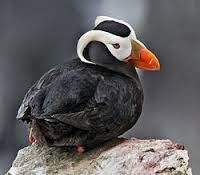 The Surprising Way Seabird Poop Helps Keep the Arctic Cool. There's no end to the unexpected ways nature is interconnected, but this is definitely one of the more humorous examples. According to new research in Nature Communications, once ammonia in seabird waste gets released into the atmosphere, it interacts with water and sulfuric acid particles to create the basic building blocks for low-lying clouds, which reflect sunlight and help keep Arctic waters cool. The Surprising Way Seabird Poop Helps Keep the Arctic Cool. There's no end to the unexpected ways nature is interconnected, but this is definitely one of the more humorous examples. According to new research in Nature Communications, once ammonia in seabird waste gets released into the atmosphere, it interacts with water and sulfuric acid particles to create the basic building blocks for low-lying clouds, which reflect sunlight and help keep Arctic waters cool.
The researchers first made the connection between seabirds and ammonia in another paper earlier this year, when they found "strong evidence" that ammonia bursts in the Arctic were tied to the tens of millions of seabirds that head north during the summer. Audubon
Russian Fisheries Say They Will Safeguard Arctic Stocks. The companies, all of them engaged in trawling in the North Atlantic, are taking measures to protect local ecosystems. With joint measures, negative effects of trawling on the sea bottom of Barents Sea and Norwegian Sea will be reduced, FishNews reports. In close cooperation with researchers and environmental organizations, the fishery companies intend to develop and implement a program for survey of vulnerable ecosystems, train crews in sustainable catch and map especially vulnerable waters. They will also analyze catch results from areas considered vulnerable. The Barents Observer
|
Legislative Action.gif)
No Arctic legislation was formally considered yesterday.
|
|
Future Events
 ArcticNet annual Scientific Meeting 2016, December 5-9, 2016 (Winnipeg, MP Canada). ArcticNet will host its 12th Annual Scientific Meeting. The ASM2016 will welcome researchers, students, Inuit, Northerners, policy makers and stakeholders to address the numerous environmental, social, economical and political challenges and opportunities that are emerging from climate change and modernization in the Arctic. As the largest annual Arctic research gathering held in Canada, ArcticNet's ASM is the ideal venue to showcase results from all fields of Arctic research, stimulate discussion and foster collaborations among those with a vested interest in the Arctic and its peoples. ArcticNet annual Scientific Meeting 2016, December 5-9, 2016 (Winnipeg, MP Canada). ArcticNet will host its 12th Annual Scientific Meeting. The ASM2016 will welcome researchers, students, Inuit, Northerners, policy makers and stakeholders to address the numerous environmental, social, economical and political challenges and opportunities that are emerging from climate change and modernization in the Arctic. As the largest annual Arctic research gathering held in Canada, ArcticNet's ASM is the ideal venue to showcase results from all fields of Arctic research, stimulate discussion and foster collaborations among those with a vested interest in the Arctic and its peoples.
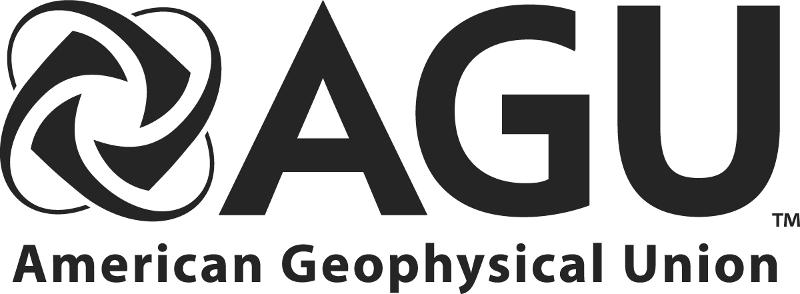 American Geophysical Union Fall Meeting, December 12-16, 2016 (San Francisco, CA USA). American Geophysical Union Fall Meeting, December 12-16, 2016 (San Francisco, CA USA). Anticipating about 25,000 attendees, AGU's Fall Meeting will again be the largest Earth and space science meeting in the world. 2016 marks the meeting's 49th year and there will be approximately 20,000 oral and poster presentations in over 1,700 sessions, many of which will focus specifically on Arctic science. Among the highlights, the "2016 Arctic Report" will again be released, IARPC will hold a "Town Hall Meeting" on Thursday, Dec. 15th, from 12:30 to 1:30 pm in Moscone West Room 2003, and NASA will have a Town Hall on Operation IceBridge on Dec. 14th, in Moscone Room 202 from 12:30 to 1:30 pm.
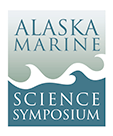 Alaska Marine Science Symposium, January 23-27, 2017 (Anchorage, AK USA). Alaska Marine Science Symposium, January 23-27, 2017 (Anchorage, AK USA). The annual Alaska Marine Science Symposium (AMSS) is Alaska's premier marine research conference. It brings together roughly 800 scientists, educators, resource managers, students, and interested public to discuss marine research being conducted in Alaskan waters. Research will be presented by geographic theme, including the Gulf of Alaska, Bering Sea & Aleutian Islands, and the Arctic. Topic areas will include ocean physics, fishes and invertebrates, seabirds, marine mammals, local traditional knowledge and more. Keynote presentations will be held Monday, January 23rd; Gulf of Alaska presentations will be on Tuesday, Bering Sea/Aleutian Islands on Wednesday, followed by the Arctic on Thursday.
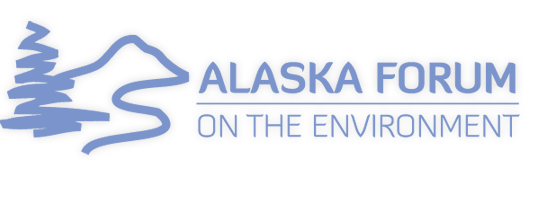 Alaska Forum on the Environment, February 6-10, 2017 (Anchorage, AK USA). Alaska Forum on the Environment, February 6-10, 2017 (Anchorage, AK USA). This statewide gathering of environmental professionals, community leaders, Alaskan youth, conservationists, biologists and community elders will be holding its 19th meeting to continue providing a strong educational foundation for all Alaskans and a unique opportunity to interact with others on environmental issues and challenges. As many as 1,800 people are expected to attend AFE this years meeting.
6th Annual Fletcher Arctic Conference, February 17-18, 2017 (Medford, MA USA). Fletcher Arctic VI, a TEDx-style event, will showcase the ideas, stories, and initiatives of people who live and work in the Arctic. The conference will bring together inspiring leaders, innovative business people, expert scientists, and artists from the pan-Arctic region. Building on The Fletcher School's interdisciplinary approach, Fletcher Arctic VI will be a forum to engage in conversation and spark open and constructive debate between speakers and participants, providing deep insights into this unique and rapidly changing region.
IV International Forum, March 2017 (Arkhangelsk, Russian Federation) Arkhangelsk will host the Forum. The Forum will be titled Human in the Arctic and will be aimed at putting together joint efforts of the international community to promote effective development of the Arctic region as a territory for comfort life, work and leisure. The Forum will be attended by government officials, representatives of international organizations and prominent business communities, centers for political studies, Polar researchers and members of the international Arctic expeditions, foreign political scientists and economists, Russian and foreign journalists from leading international media organizations. The Forum will be attended by the President of the Russian Federation, Mr. Vladimir Putin. Additional information will be announced here.
- The Arctic Cryosphere
- Pollution in the Arctic
- Human Health Aspects of Pollution and Climate Change
- Global and Arctic Systems Feedback Mechanisms
- Resilience within Arctic Ecosystems
- Science and Plicy Making
- Socio-Economic Drivers and Impacts of Arctic Change
Organizers announce a call for abstracts which are due by December 2, 2016. The event is organized by the Arctic Monitoring and Assessment Program (AMAP).
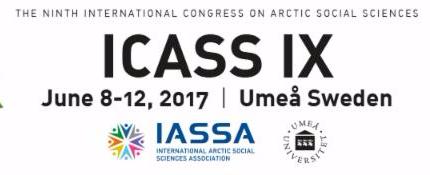 Ninth International Congress of Arctic Social Sciences: People and Places (ICASS IX), June 8-12, 2017 (Umeå, Sweden).ICASS IX's theme is People & Place. Research on social sciences and humanities have a great responsibility to address the challenges for sustainable development in the Arctic, with a specific focus on the many different parts of the Arctic and the people that live there. The multiple Arctics have lately been addressed by many policy makers and researchers. The purpose is often to counteract the stereotypic understanding of the Arctic too often represented by icebergs and polar bears. A focus on people and place highlights the many variances across the region in terms of climate, political systems, demography, infrastructure, history, languages, legal systems, land and water resources etc. Ninth International Congress of Arctic Social Sciences: People and Places (ICASS IX), June 8-12, 2017 (Umeå, Sweden).ICASS IX's theme is People & Place. Research on social sciences and humanities have a great responsibility to address the challenges for sustainable development in the Arctic, with a specific focus on the many different parts of the Arctic and the people that live there. The multiple Arctics have lately been addressed by many policy makers and researchers. The purpose is often to counteract the stereotypic understanding of the Arctic too often represented by icebergs and polar bears. A focus on people and place highlights the many variances across the region in terms of climate, political systems, demography, infrastructure, history, languages, legal systems, land and water resources etc.
- Small and off-grid community energy solutions
- Oil and gas development
- Renewable energy
- Regulation and Financing
- Transportation and transmission
The AES is a multi-disciplinary event expected to draw several hundred industry officials, scientists, academics, policy makers, energy professionals and community leaders together to collaborate and share leading approaches on Arctic energy issues.
 POLAR 2018, June 15-27, 2018 (Davos, Switzerland). POLAR2018 is a joint event from the Scientific Committee on Antarctic Research (SCAR) and the International Arctic Science Committee (IASC). The SCAR meetings, the ASSW and the Open Science Conference will be hosted by the Swiss Federal Institute for Forest, Snow and Landscape Research WSL under the patronage of the Swiss Committee on Polar and High Altitude Research. The WSL Institute for Snow and Avalanche Research SLF is organizing POLAR2018. POLAR 2018, June 15-27, 2018 (Davos, Switzerland). POLAR2018 is a joint event from the Scientific Committee on Antarctic Research (SCAR) and the International Arctic Science Committee (IASC). The SCAR meetings, the ASSW and the Open Science Conference will be hosted by the Swiss Federal Institute for Forest, Snow and Landscape Research WSL under the patronage of the Swiss Committee on Polar and High Altitude Research. The WSL Institute for Snow and Avalanche Research SLF is organizing POLAR2018.
|
|

  
4350 N. Fairfax Drive, Suite 510
Arlington, VA 22203, USA
External links in this publication, and on the USARC's World Wide Web site ( www.arctic.gov) do not constitute endorsement by the US Arctic Research Commission of external Web sites or the information, products or services contained therein. For other than authorized activities, the USARC does not exercise any editorial control over the information you may find at these locations. These links are provided consistent with the stated purpose of this newsletter and the USARC Web site.
|
|
|
|
|
|
|
|
|